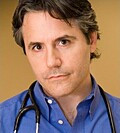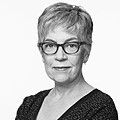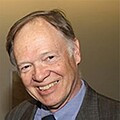On June 7-8, 2012, over a hundred and fifty participants gathered at the New York Academy of Medicine (NYAM) for the Healthy Environments Across Generations meeting focused on the impacts that multiple, interacting environments can have on health (including the socioeconomic, chemical, food, built, natural and psychosocial environments) as well as intergenerational and creative approaches to improve public and planetary health. CHE partnered with NYAM, AARP, the US EPA, The Intergenerational School, WE ACT for Environmental Justice, The Whole Child Center, and Grey is Green, along with over 60 co-sponsors, to put on this event. The absence of PowerPoint, the presence of cross-disciplinary conversational formats, the integration of the arts and music, and the amplification of our collective experience through social media, sketches and videography generated a range of creative ideas and collaborative opportunities that are now beginning to be molded into concrete actions. This CHE partner call featured several of the “content framers” who attended the event at NYAM. They spoke to what they learned and what they are doing (and intend to do) differently in order to make real the vision and values articulated at this meeting.
Featured Speakers
Harry R. Moody, PhD, director of Academic Affairs for AARP. Dr. Moody is known nationally for his work in older adult education and recently stepped down as Chairman of the Board of Elderhostel. He has also been active in the field of biomedical ethics and holds appointment as an Adjunct Associate of the Hastings Center. Dr. Moody is the author of over 100 scholarly articles and book chapters, as well as a number of books including: Abundance of Life: Human Development Policies for an Aging Society (Columbia University Press, 1988); Ethics in an Aging Society (Johns Hopkins University Press, 1992); and Aging: Concepts and Controversies, a gerontology textbook now in its 3rd edition. His most recent book, The Five Stages of the Soul, was published by Doubleday Anchor Books (1997) and has been translated into seven languages worldwide.
 Lawrence Rosen, MD, The Whole Child Center. Dr. Rosen is a board-certified general pediatrician committed to family-centered, holistic child health care. He founded one of the country's first "green" pediatric practices, The Whole Child Center, in Oradell, NJ, and consults at the Joseph M. Sanzari Children's Hospital at Hackensack University Medical Center, serving as Medical Advisor to the Deirdre Imus Environmental Health Center.
Lawrence Rosen, MD, The Whole Child Center. Dr. Rosen is a board-certified general pediatrician committed to family-centered, holistic child health care. He founded one of the country's first "green" pediatric practices, The Whole Child Center, in Oradell, NJ, and consults at the Joseph M. Sanzari Children's Hospital at Hackensack University Medical Center, serving as Medical Advisor to the Deirdre Imus Environmental Health Center.
Erika Svendsen, PhD, Research Social Sceintist, US Forest Service
Dr. Svendsen is a research social scientist with the US Forest Service, Northern Research Station (NRS) and is based in New York City. Dr. Svendsen’s research focuses on urban environmental stewardship and issues related to governance, social-ecological resilience and human well-being. Her work includes understanding the spatial, temporal and sacred aspects of stewardship systems, studying both organizations and individuals.

Kim Knowlton, DrPH, senior scientist, Health and Environment Program, Natural Resources Defense Council. Dr. Knowlton is also assistant clinical professor of environmental health sciences at the Mailman School of Public Health, Columbia University; and chair of the Global Climate Change and Health Topic Committee of the American Public Health Association’s Environment Section. Her work focuses on the health effects of climate change; advocating for strategies to prepare for and prevent these impacts, especially for our most vulnerable communities; and making health a more central feature of national, state, and local climate change adaptation plans.
The call was moderated by Elise Miller, MEd, director of the Collaborative on Health and the Environment.
Special note: A listserv has been established to continue the conversation started at the Healthy Environments Across Generations conference. The listserv provides announcements on upcoming intergenerational health opportunities and events, possibilities for collaboration and other updates. Anyone is welcome to join the listserv whether you participated in the conference in NYC or not. If you are not a CHE Partner, please first complete the Partner application (you can select to join the conference listserv as a part of the application). If you are already a CHE Partner, please see our Contact page to request to join the listserv.

